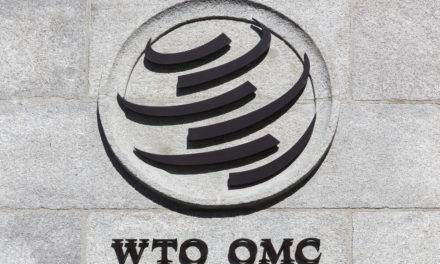Seemingly out of nowhere, President Donald Trump recently began attacking the Affordable Care Act again.
But in a strange turn of events he seemingly called off the dogs in a Monday night tweet storm, saying there will be no Obamacare replacement vote until after the 2020 elections, effectively punting on a divisive issue that Democrats used against the GOP in the 2018 midterm elections.
The tweets confirm what pretty much everyone knows: Republicans, who have campaigned for nearly a decade on repealing and replacing Obamacare … still don’t have a replacement for Obamacare.
“Everybody agrees that ObamaCare doesn’t work. Premiums & deductibles are far too high – Really bad HealthCare!” Trump tweeted. “Even the Dems want to replace it, but with Medicare for all, which would cause 180 million Americans to lose their beloved private health insurance. The Republicans are developing a really great HealthCare Plan with far lower premiums (cost) & deductibles than ObamaCare.
“In other words it will be far less expensive & much more usable than ObamaCare. Vote will be taken right after the Election when Republicans hold the Senate & win back the House. It will be truly great HealthCare that will work for America. Also, Republicans will always support Pre-Existing Conditions. The Republican Party will be known as the Party of Great HealtCare. Meantime, the USA is doing better than ever & is respected again!”
While Trump looks to have kicked the health care can down the road for fear it will be used against him and the GOP, there’s no stopping a lawsuit brought by the administration and more than 20 state attorneys general seeking an end to Obamacare through the courts.
The wildly unpopular individual mandate that required everyone to have health insurance or face fines has already been tossed out by the court. However, the Supreme Court ultimately has upheld the ACA and told lawmakers that changing the health care law is up to Congress, not the court.
Per Politico:
Trump’s call to again put Obamacare repeal on the table for Hill Republicans was seen as a potential disaster-in-the making by GOP leaders, who knew their incumbents and candidates were hurt by it badly last November. And it was an invitation to Speaker Nancy Pelosi (D-Calif.) to pound home the issue once more, as she plans to do with a House vote this week condemning the administration’s decision not to defend Obamacare in court.
Trump’s efforts to eradicate Obamacare have also endangered some of the administration’s health initiatives, such as lowering prices for prescription drugs and combating opioid abuse and HIV.
In public and private, Republican leaders made clear that they didn’t want anything to do with the president’s most recent maneuver. They begged Trump to back down, and made their displeasure known to other administration officials, as well.
GOP lawmakers even took the position that if Trump wanted to lay out his own health care proposal, then they would be willing to look at it. But Senate Republicans — facing a tough electoral fight to maintain their majority in 2020 — have refused to sign on to a new administration drive before seeing the specifics, giving them room to disavow any Trump proposal if it hinders their own political outlook.
“I look forward to seeing what the president is proposing and what he can work out with the speaker,” Senate Majority Leader Mitch McConnell (R-Ky.) said in a brief interview Thursday, adding: “I am focusing on stopping the ‘Democrats’ Medicare for none’ scheme.”
McConnell himself is up for re-election this cycle, as are vulnerable GOP incumbents including Cory Gardner of Colorado and Susan Collins of Maine, who said she doesn’t want the Justice Department to push to strike down Obamacare.
The Affordable Care Act has been a thorn in the side of Republicans since it was enacted in 2010. After the GOP took back the House in the midterm elections that year, GOP lawmakers repeatedly passed legislation designed to repeal Obamacare.
Once Trump was elected president on a promise of different and better health care options, Republicans seemed on the path to finally scrapping the law, only to see a 2017 “skinny repeal” effort fail unexpectedly in the Senate. That attempt collapsed when Arizona Sen. John McCain — upset with the irregular way the legislation was being handled — stunned his colleagues by voting against it.




